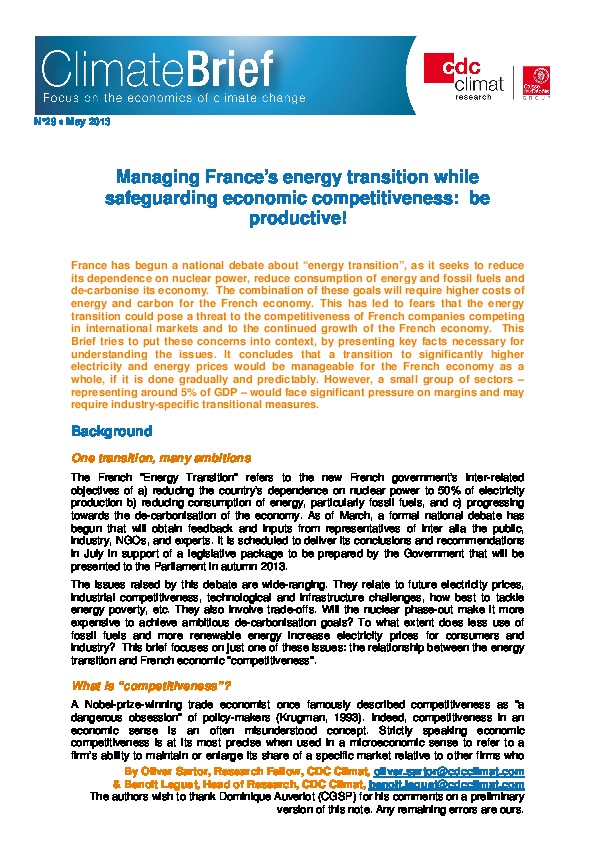Managing France’s energy transition while safeguarding economic competitiveness: be productive!
By Oliver Sartor and Benoît Leguet, I4CE
- Is the French energy transition compatible with economic growth and a “competitive” French economy? Our answer is “yes, with some conditions”.
- The French economy is better positioned today for a meaningful energy transition than it has been for over 40 years. At the level of the macro-economy, a steady shift to higher energy prices is now much easier without hurting economic growth than it once was.
- A small percentage of energy-intensive sectors may need targeted and temporary assistance with this transition.

